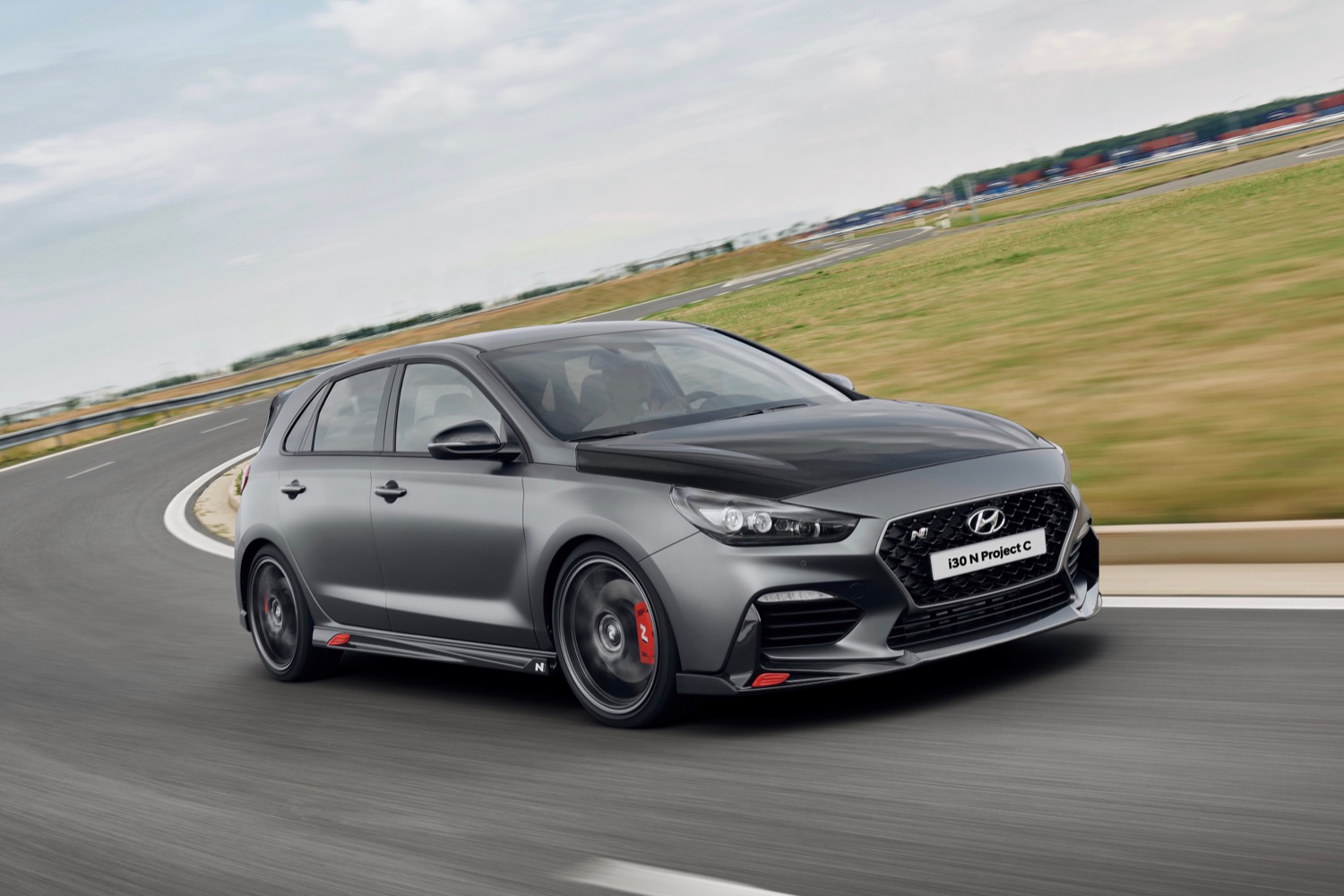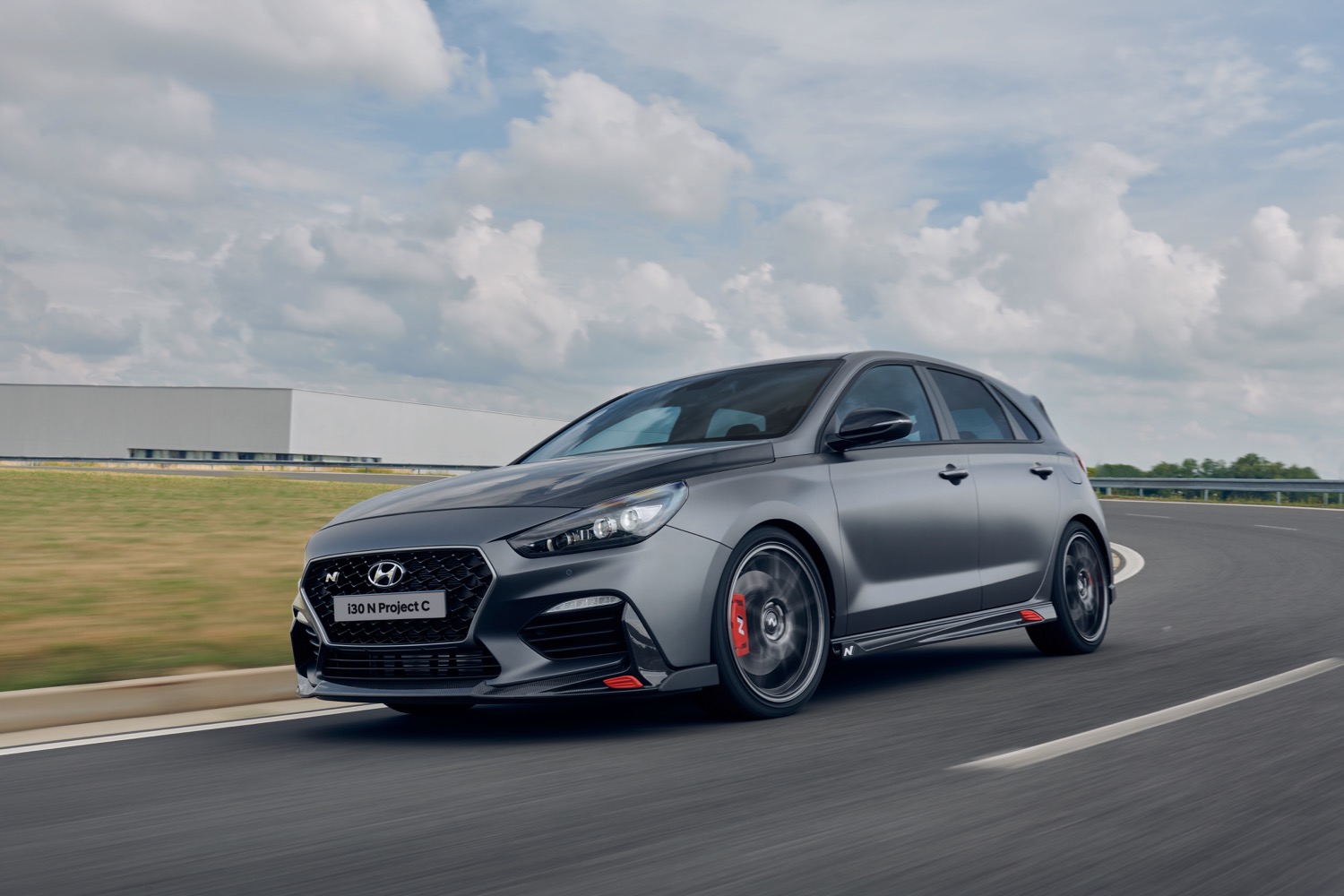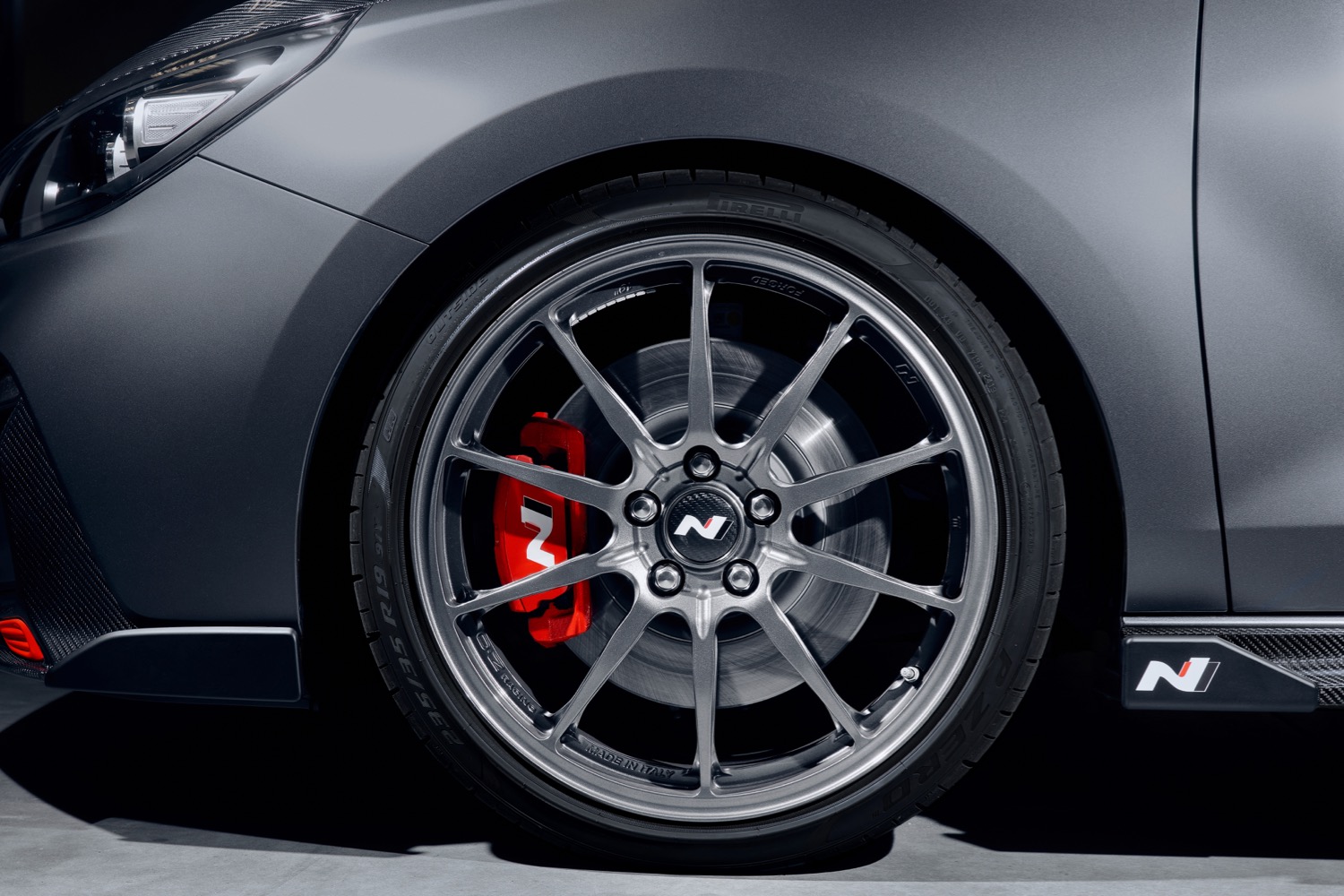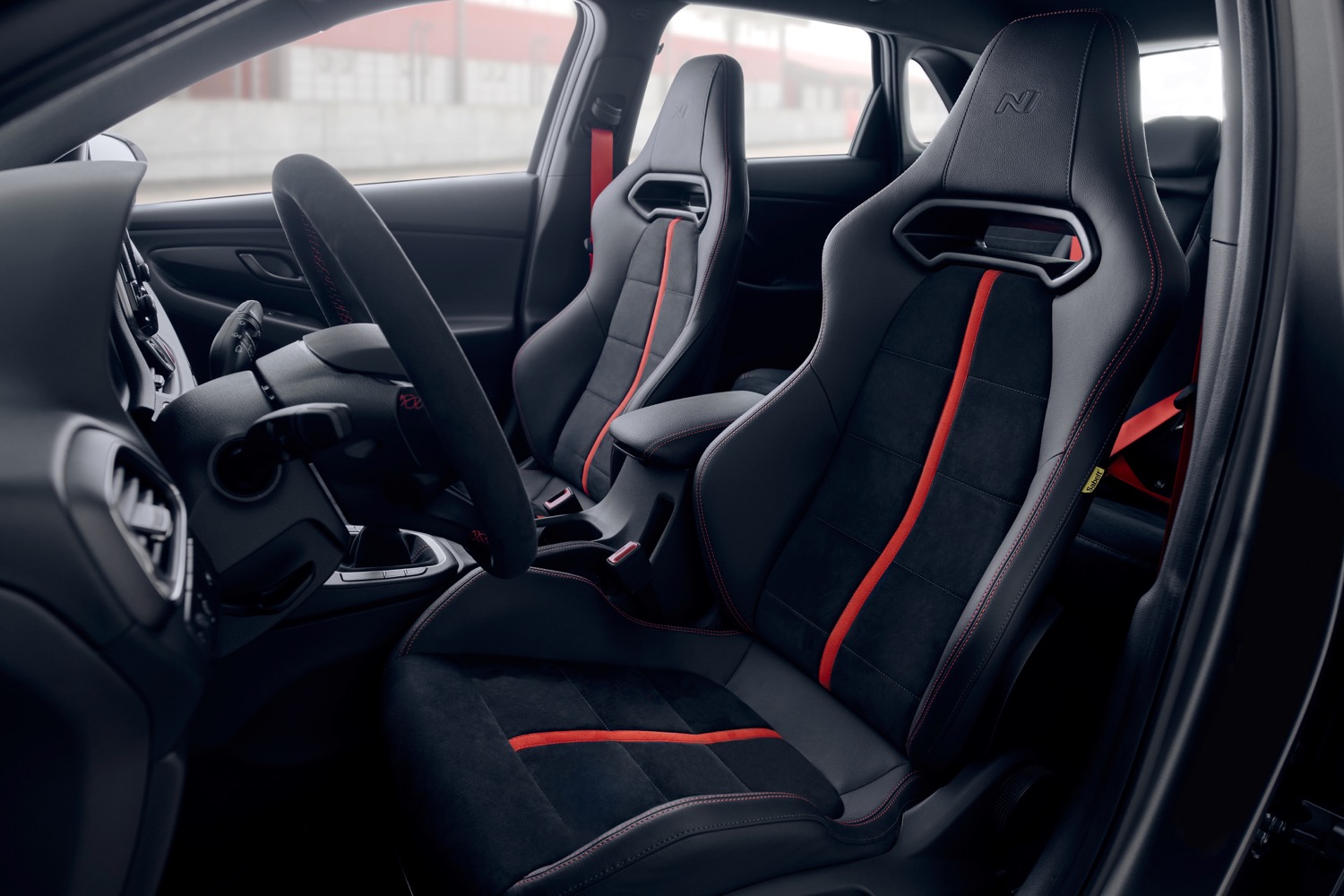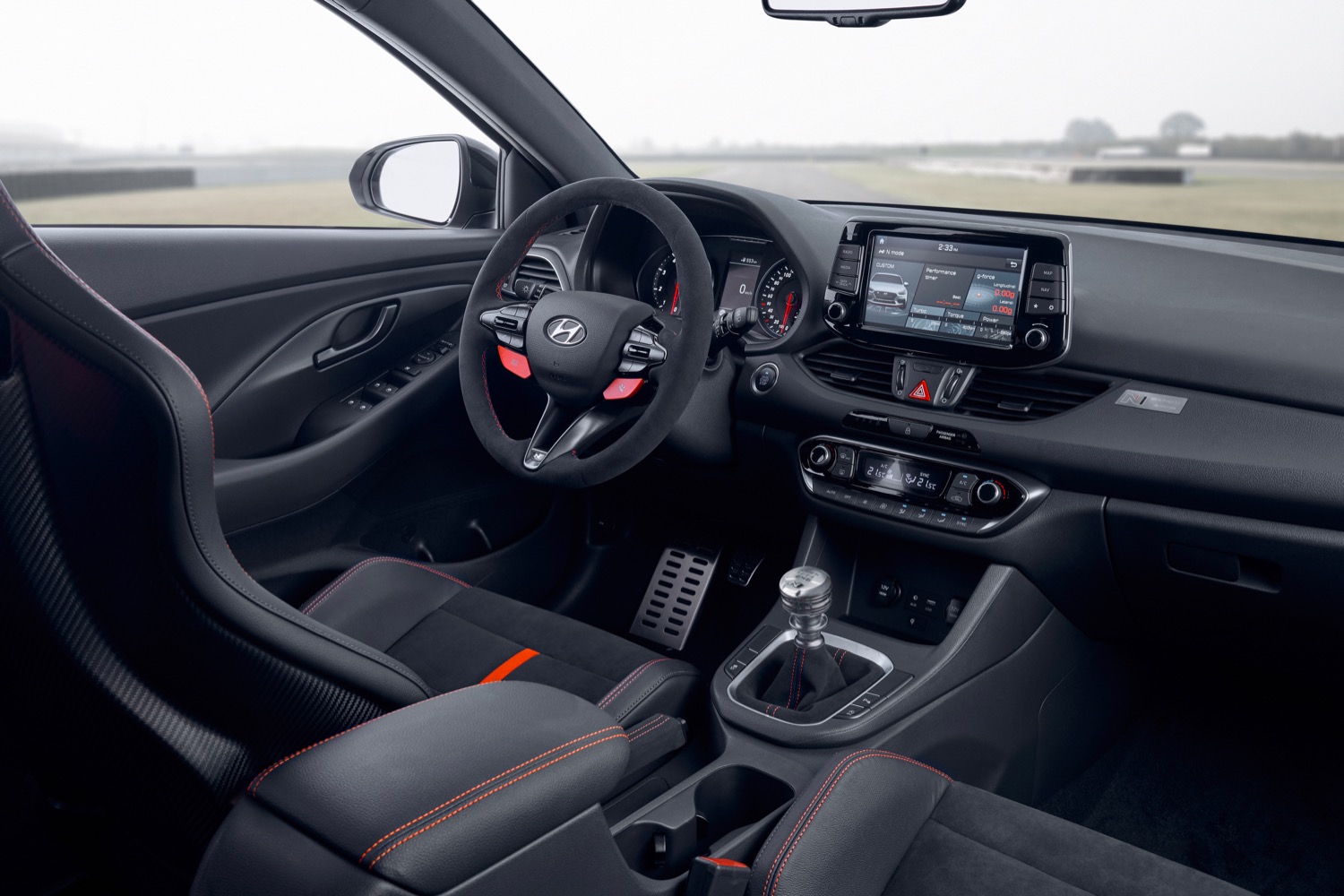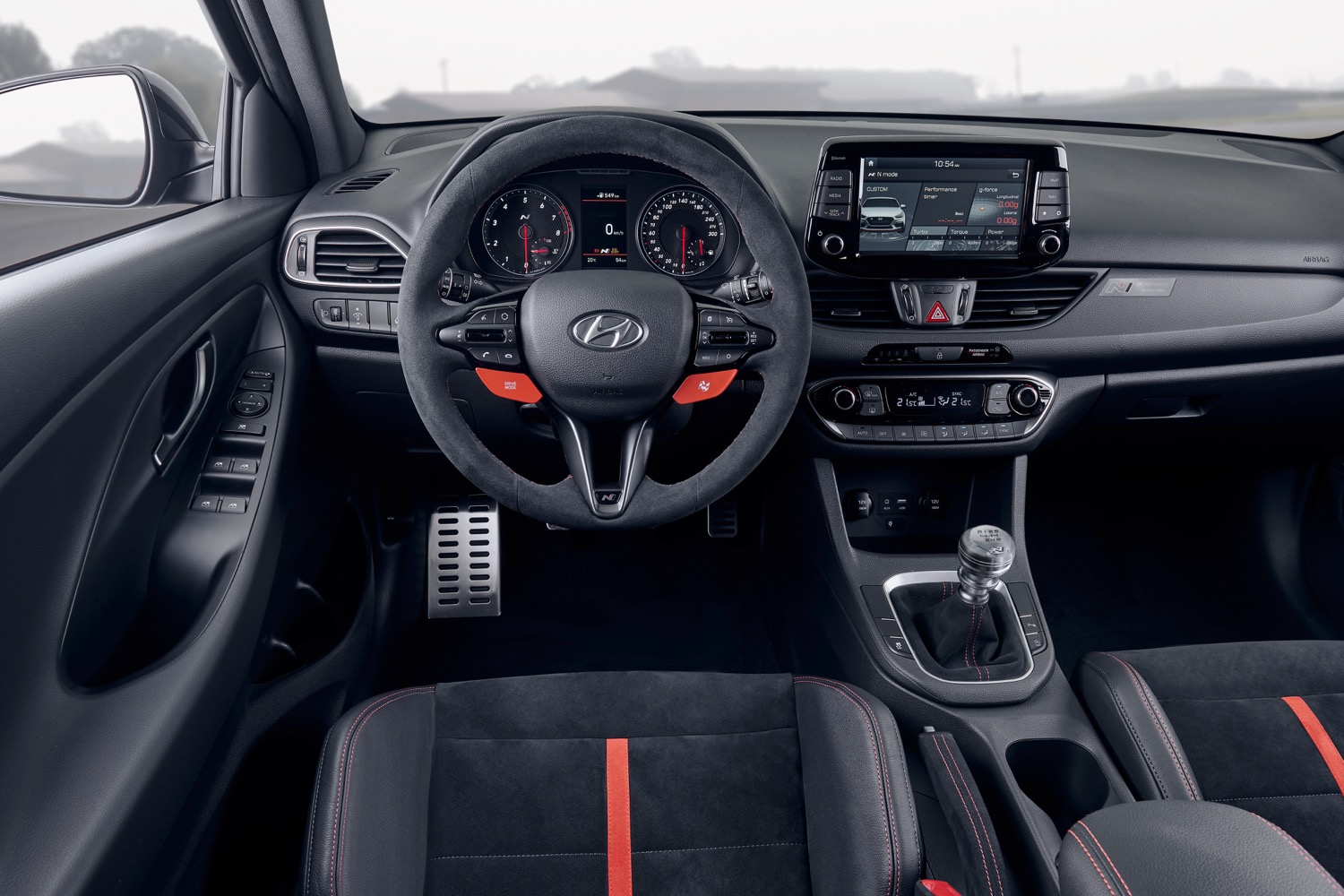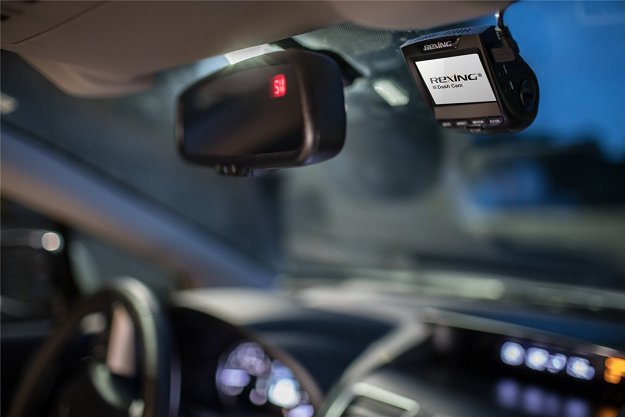Hyundai launched its N performance sub-brand with the i30 N hot hatchback, but now the South Korean automaker is trying to kick things up a notch. Debuting at the 2019 Frankfurt Motor Show, the Hyundai i30 N Project C will be a limited-edition model that weighs less and has sharper handling. Like the standard i30 N, the Project C won’t be sold in the United States.
The Project C gets its name from “Area C,” a test track at Hyundai’s Namyang, South Korea, research and development center, where N performance models are tested. Weight savings are what separate the Project C from a standard i30 N. The car is 50 kilograms (110 pounds) lighter, according to Hyundai. That’s thanks to carbon fiber-reinforced plastic (CFRP) parts, including an unpainted hood that makes the Project C look like the cover car from an early 2000s tuner magazine. The 19-inch wheels are specific to the Project C, and are lighter than the wheels used on the standard i30 N, as are the Sabelt bucket seats, according to Hyundai.
The front splitter and rear diffuser are made of CFRP as well, and they aren’t just for looks. Hyundai claims they provide aerodynamic downforce that will make the Project C quicker around a racetrack, or along a twisty road. Add-ons like these can create aerodynamic drag, limiting top speed and hurting fuel efficiency, but Hyundai claims the Project C has the same 0.32 drag coefficient as the standard i30 N.
Hyundai did not make any changes to the 2.0-liter turbocharged engine, which makes the same 271 horsepower as the current i30 N Performance model. Hyundai also sells an entry-level model with the same engine, tuned to 247 horsepower. Both models have 279 pound-feet of torque, and feature six-speed manual transmissions with front-wheel drive.
Production of the Hyundai i30 N Project C will be limited to 600 units — all destined for Europe. Hyundai doesn’t sell the i30 N in the U.S., so the Project C never had a chance of being imported. Hyundai sells the base, non-N version of the i30 in the U.S. as the Elantra GT. You can have a 201-hp N-Line version of that car, but not the full N model.
Instead of the i30 N, the U.S. gets the Veloster N, which is based on the same basic platform and uses the same engine. The main difference is the body: The i30 is a conventional five-door hatchback, while the Veloster has an unorthodox three-door layout. Since the two cars share so much, maybe Hyundai will create a limited edition of the Veloster N as well.
The Hyundai i30 N will make its public debut at this week’s 2019 Frankfurt Motor Show. Hyundai will also unveil an electric race car at the show.
Updated on September 11, 2019: Added details and camouflage-free photos.
